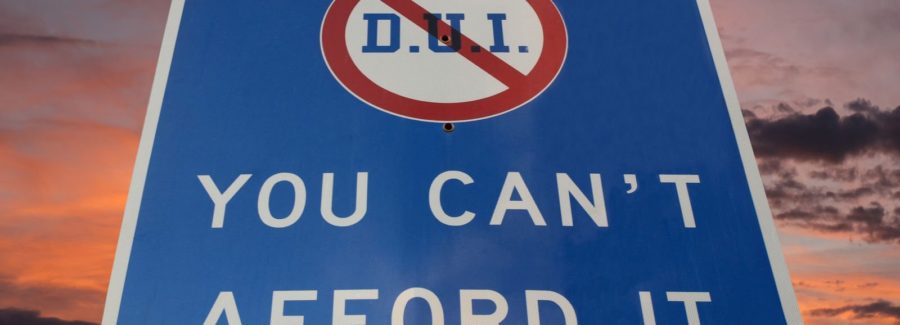8:00 - 17:00
Opening Hour: Mon - Fri
Drinking and driving or using drugs and driving is illegal in every state. There isn’t a state in which you may drive under the influence legally at any time, and a police officer has the right to test you for DUI during a traffic stop if they have probable cause.
Connecticut law does not allow law enforcement officers to pull over any person for a suspected DUI without probable cause, which means the officer must witness you doing something illegal:
If an officer witnesses this or has received a call from another driver who has witnessed you breaking laws on the road, the officer may pull you over.
If there seems to be a reason to test you for DUI, the officer will do just that. An officer might request a breathalyzer or blood alcohol test for any of the following reasons.
If you are pulled over and arrested for DUI, your future becomes complicated. Not only do you face potential jail time and serious monetary fines in Connecticut, you also face other financial problems.
One of the biggest financial problems associated with a DUI in Connecticut is the increase in insurance premiums guilty parties receive.
Even comparing insurance quotes from various companies won’t find your rates even remotely close to what you were paying prior to being arrested and charged with a DUI.
If you have a DUI on your record, or even if you don’t, you should compare car insurance quotes to make sure you find the best rate possible for the coverage you need. Use our free comparison tool above to get started.
Table of Contents

Driving Under the Influence is what DUI stands for, and it doesn’t only mean driving under the influence of alcohol. That’s a common misconception.
It also means driving under the influence of drugs whether they are legal or prescription.
Even prescription drugs become illegal if they are not your prescription drugs issued to you by your own medical doctor.
Connecticut laws don’t consider everyone who has been drinking prior to driving a problem. If you are younger than 21 and your blood-alcohol content (BAC) is 0.02 percent, you are guilty of DUI.
If you are older than 21, the BAC limit is 0.08 percent. If you are a commercial vehicle driver, the legal BAC limit is 0.04 percent.
If you’re curious how many drinks it takes to meet the legal limit, you’ll be disappointed to know it differs for everyone based on age, size, weight, and other factors.
There are serious penalties in Connecticut for anyone who makes the decision to drive under the influence.
The law imposes jail time, monetary fines, and even license suspension as well as additional penalties that vary depending on how many times you’ve been arrested for DUI in the past 10 years.
Your DUI record is essentially “wiped clean” every 10 years, which is something you should keep in mind.
First time offender might spend as many as six months in jail when found guilty of a DUI. Six months is the maximum amount of time a person can be sentenced to a DUI. The minimum jail term is two days for someone found guilty of a DUI for the first time.
If you are found guilty of a DUI for the first time, you face fines of up to $1,000 but not less than $500. The amount of the fine can vary based on several factors, including whether you can afford it or you would rather spend time in jail than pay the money to the court.
There is a mandatory license suspension of one year for anyone found guilty of a first-time DUI. You do have the legal right to check with the court to petition for specific driving abilities such as to and from work, for medical emergencies, or to care for your children.
The court gets to make this decision when suspending your license, but there is no mandatory law requiring you to install an Ignition Interlock Device (IID) in your vehicle for a first offense.

A second DUI is only possible if your first DUI was within 10 years of the second. If your first DUI was longer than 10 years ago, it’s considered a washout in Connecticut and this is going to turn into your first DUI once again.
If it is your second offense, however, the penalties are far worse than they were the first time.
Jail time lasts anywhere from four months to two years. Monetary fines cost anywhere from $1,000 to $4,000. Your license is automatically suspended for one year, and you’re required to have an IID installed in your vehicle.
An IID requires you blow into the machine. If you breathe higher than the legal limit, your vehicle will not start. You will also have an IID mark on your license to make it impossible for you to rent a car.
Enter your ZIP code below to view companies that have cheap auto insurance rates.

Connecticut law does not allow you to be arrested more than three times for a DUI. The reason is very simple. You don’t get a fourth chance. Your license is taken from you permanently if you are arrested three times within 10 years for driving under the influence.
Your jail time will last at least one year, but no more than three years. Fines are between $2,000 and $8,000.
It is within your legal right to refuse to take any chemical tests when you are pulled over and suspected of DUI.
You will automatically be arrested even if you refuse to take a test, and it will not appear that you were innocent in a court of law.
A judge and jury tend to view your refusal to submit to any sort of chemical test at the scene as an admission of guilt. However, it is your legal right to refuse a breathalyzer or blood test.
You must note that refusal to submit to testing does not mean you get off without an arrest. You can still be charged with a DUI, but the prosecutor has to prove you were driving under the influence using other means. You will still face punishment, however.
First offense refusal is going to cost you your driver’s license for six months. You may ask the court to reconsider for special needs, but there is very little sympathy in the court when someone refuses to take a test at the scene of a suspected DUI. However, it is your legal right.
If you are pulled over for the second time in 10 years, it’s called a second offense. If you refuse to take a test at the scene a second time, you will lose your license for one year. You may petition the court for special driving privileges if you wish.
If your third DUI stop is made within 10 years, you still have the legal right to refuse to take a test. Once again, if you do refuse to take any chemical tests at the scene of the crime, you are within your legal rights.
When you enact your right to refuse testing a third time, your license is taken from you for three years. You may petition the court for special driving privileges.

Driving under the influence doesn’t just affect your ability to drive and your reputation. It also affects your financial situation outside of your monetary fines. DUIs change your insurance rates forever.
You can shop around and compare rates with various companies using free online quotes, but it’s near impossible to find affordable insurance rates when you are convicted of a DUI.
Compare quotes right here to find the lowest rates possible regardless of your record.
There are fewer discounts, there are fewer savings, and some companies might decide to drop your coverage depending on how many times you’ve been charged with DUI.
Auto Insurance Laws